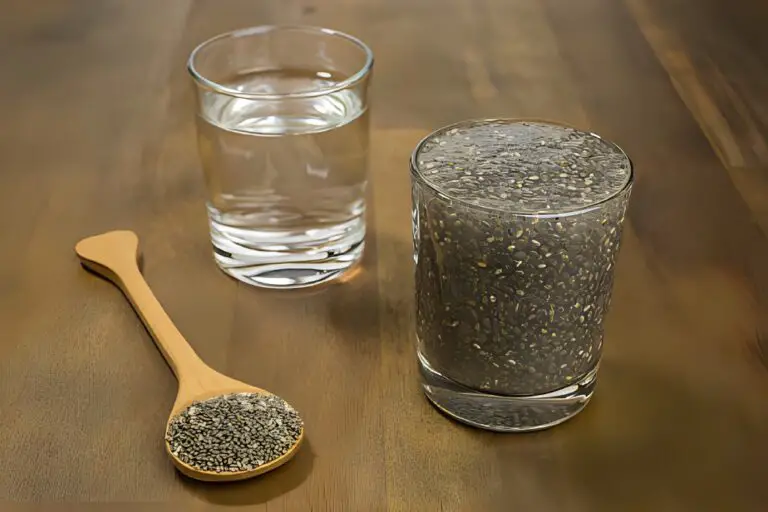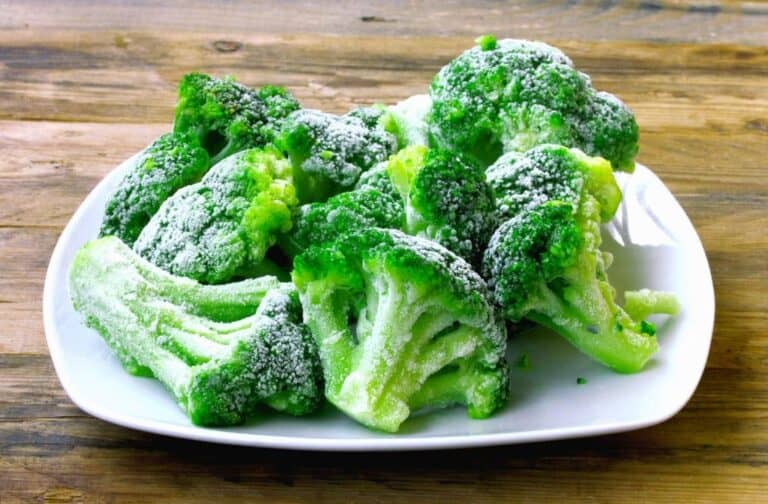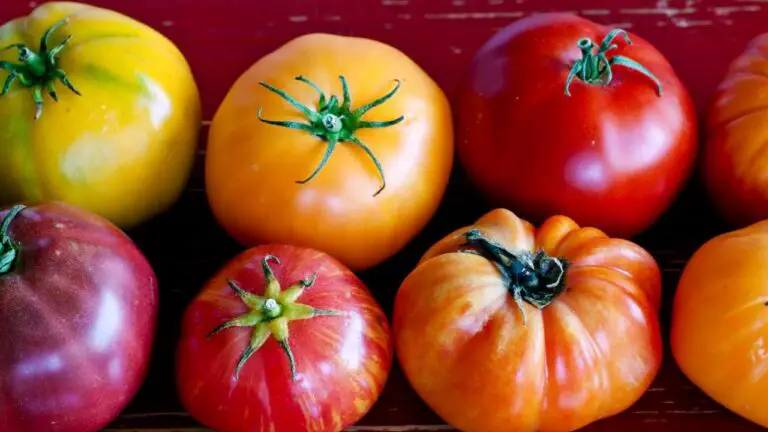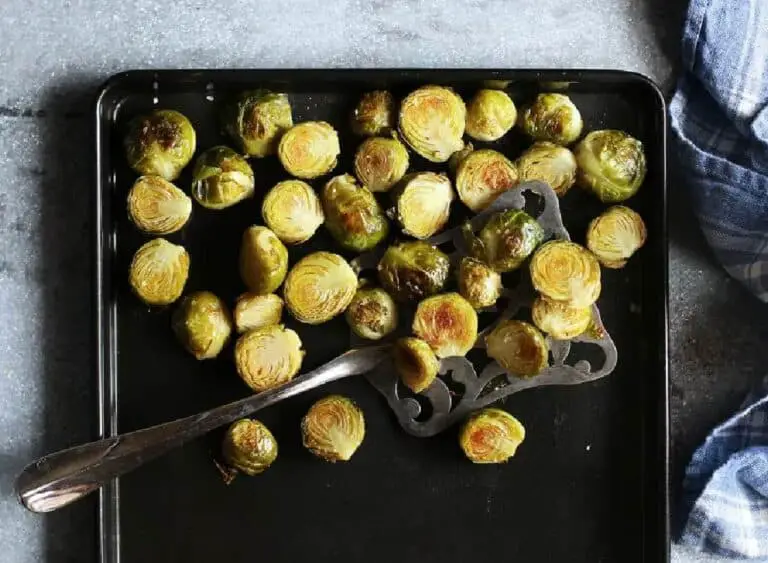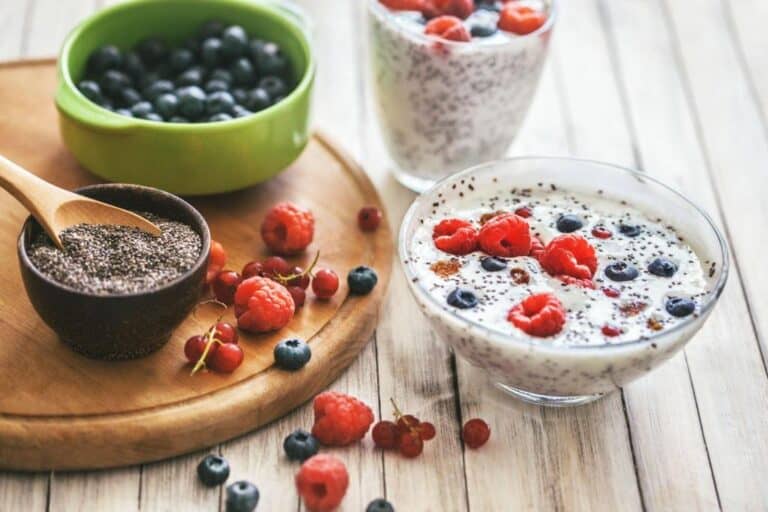Why Are My Roasted Brussel Sprouts Bitter? Here’s Why and How to Fix It!
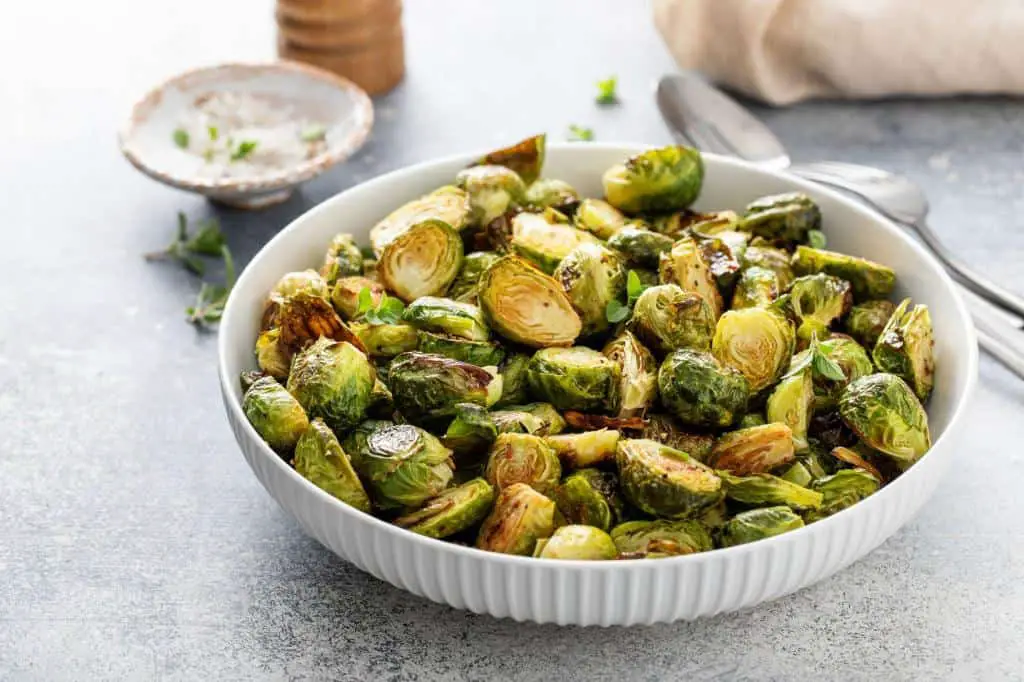
Picture this: you’re eagerly anticipating a plate of perfectly roasted Brussels sprouts. The aroma fills the air as they sizzle in the oven, and your taste buds tingle with excitement. But when you take that first bite, instead of the sweet and savory delight you were expecting, a bitter taste lingers on your tongue.
What went wrong? Don’t fret! We’re here to unravel the mystery behind bitter roasted Brussels sprouts and provide you with the ultimate guide to fixing this culinary conundrum.
In this article, we’ll delve into the science behind the bitterness, explore the common culprits that lead to this unwelcome taste, and arm you with practical tips to turn your sprouts into a delectable masterpiece.
So, whether you’re a Brussels sprouts enthusiast or just starting to embrace their charms, join us on this flavor-packed journey as we uncover why your roasted Brussels sprouts might be bitter and discover the secrets to transforming them into a culinary delight.
Understanding the Science of Brussels Sprouts Bitterness
Before we delve into the reasons behind the bitterness of roasted Brussels sprouts, it’s important to understand the science behind their taste. Brussels sprouts belong to the cruciferous vegetable family, which includes broccoli, cabbage, and kale.
They contain natural compounds called glucosinolates, which are responsible for their distinct taste. These compounds are a natural defense mechanism for the vegetable, deterring pests from feeding on them.
When Brussels sprouts are cooked, these glucosinolates break down into other compounds, including isothiocyanates, which can give the sprouts a slightly bitter or pungent flavor.
However, the bitterness should be mild and balanced by the vegetable’s inherent sweetness. If your roasted Brussels sprouts are overly bitter, it could be due to a few factors.
The Role of Sulfur Compounds
Brussel sprouts, like other cruciferous vegetables, contain sulfur-containing compounds. These compounds contribute to the distinctive aroma and flavor of these vegetables. However, when not handled properly, they can also contribute to bitterness. Proper preparation and cooking techniques can help manage the release of sulfur compounds, ensuring that the flavors are well-balanced and free from excessive bitterness and odor.
Why Are My Roasted Brussel Sprouts Bitter?
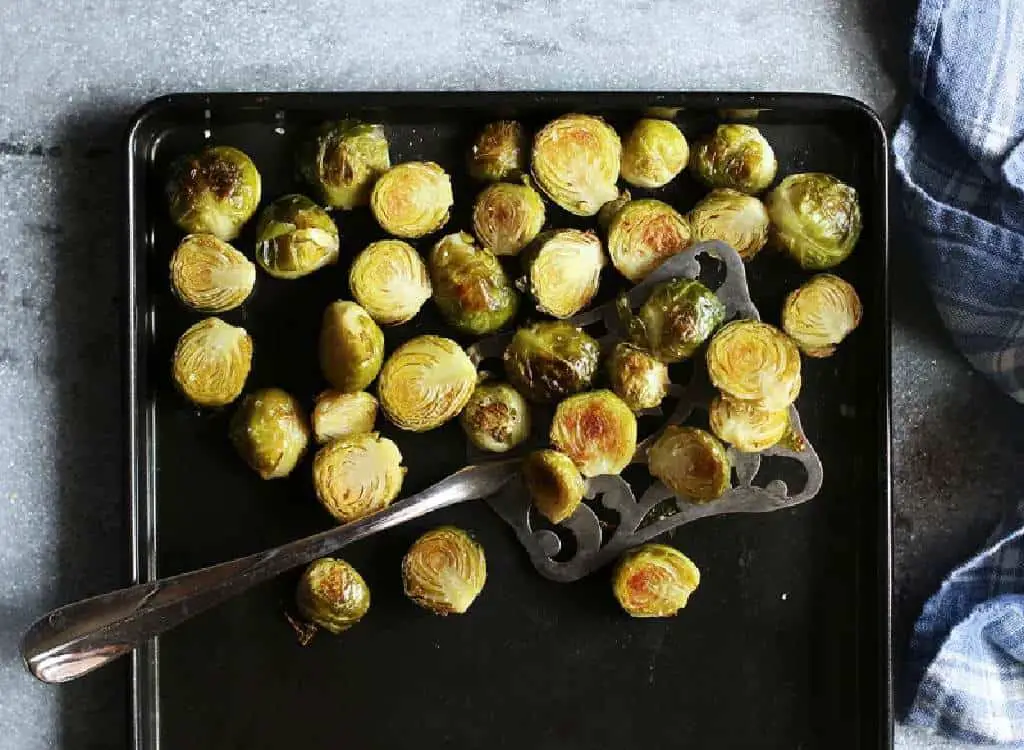
If you’ve experienced the unfortunate occurrence of roasted Brussels sprouts turning out bitter, you may be left wondering what went wrong. Bitterness in roasted Brussels sprouts can be attributed to a few factors, but fear not, there are steps you can take to ensure a more enjoyable flavor profile.
Below are several reasons for Bitter Roasted Brussels Sprouts
1. Overcooking
One common mistake when roasting Brussels sprouts is overcooking them. Brussels sprouts have a delicate balance between being tender and crisp. If they are cooked for too long or at a high temperature, they can become mushy and develop a stronger bitter taste. To avoid this, make sure to keep an eye on them while they roast and check for doneness with a fork.
2. Low-Quality Sprouts
The quality of the Brussels sprouts you use can also impact their taste. Fresh and high-quality sprouts are less likely to be bitter compared to older or lower-quality ones. When buying Brussels sprouts, look for firm, compact sprouts with vibrant green leaves. Avoid sprouts that have yellow or wilted leaves, as they may have lost their freshness and could taste bitter when roasted.
3. Lack of Seasoning
Roasted Brussels sprouts can benefit greatly from proper seasoning. If you don’t season Brussels sprout adequately, they might taste bland and allow the bitterness to dominate. Seasoning with salt, pepper, and other herbs or spices can help balance out the flavors and bring out the sweetness of the sprouts. Consider adding garlic, lemon zest, or balsamic vinegar for extra flavor.
4. Incorrect Oil Usage
The type of oil you use for roasting Brussels sprouts can make a difference in their taste. Using oils with low smoke points, such as extra virgin olive oil, can lead to a bitter flavor when exposed to high temperatures. Opt for oils with higher smoke points, such as canola or avocado oil, which can withstand the heat of roasting without developing a bitter taste.
5. Seasonal Variations
Brussels sprouts are a seasonal vegetable, and their taste can vary depending on the time of year. Generally, Brussels sprouts harvested after the first frost of the season tend to have a milder and sweeter flavor. If you’re experiencing consistently bitter roasted Brussels sprouts, it might be worth considering the seasonal variation and adjusting your cooking technique accordingly.
Factors Affecting Bitterness in Brussel Sprouts
Several factors can affect the bitterness of roasted Brussel sprouts, ranging from cultivation to cooking techniques. Understanding these factors can help you pinpoint the root cause of bitterness and take corrective measures:
- Soil quality and cultivation methods: The quality of the soil in which Brussel sprouts are grown, as well as the cultivation practices employed, can impact their taste. Factors such as nutrient levels, pH balance, and pesticide usage can influence the bitterness of the final product.
- Harvesting and storage conditions: The timing and handling of Brussel sprout harvest can play a significant role in bitterness. Delayed harvesting or improper storage conditions can cause the vegetable to develop a more pronounced bitter flavor.
- Cooking techniques and temperatures: The cooking method and temperature directly affect the taste and texture of roasted Brussel sprouts. High heat or prolonged cooking can intensify the bitterness, while proper techniques can help preserve the natural sweetness and minimize bitterness.
Tips to Reduce Bitter Roasted Brussels Sprouts
Now that we’ve identified some common reasons behind bitter roasted Brussels sprouts, let’s explore how to fix them and achieve a delightful taste.
- Trim and Halve: Before roasting, make sure to trim the tough outer leaves of the sprouts and cut them in half. This will help the Brussels sprouts cook more evenly and reduce the chances of bitterness.
- Control the Cooking Time: Keep a close eye on the Brussels sprouts while they roast. Overcooking can intensify the bitterness. Aim for a golden brown color and a slight crispness. The sprouts should still retain some tenderness.
- Season Well: Don’t be afraid to season your Brussels sprouts generously. Along with salt and pepper, experiment with different herbs and spices to enhance their flavor. Consider options like thyme, rosemary, paprika, or even a sprinkle of Parmesan cheese for added depth.
- Add Sweetness: Counterbalance the bitterness by incorporating a touch of sweetness. You can do this by adding a drizzle of honey or maple syrup during the last few minutes of roasting. The natural sugars will help to mellow out the bitterness and create a harmonious flavor profile.
- Experiment with Different Cooking Methods: If roasted Brussels sprouts consistently turn out bitter for you, try alternative cooking methods. Steaming or sautéing Brussels sprouts can result in a milder taste. Experiment with these techniques to find the cooking method that suits your palate.
- Pair with Complementary Flavors: Consider serving your roasted Brussels sprouts with ingredients that complement their taste. Tangy balsamic glaze, creamy goat cheese, or toasted nuts like almonds or pecans can add contrasting flavors and textures, making the bitterness less noticeable.
- Choose Fresh, High-Quality Sprouts: Select fresh Brussels sprouts that are firm and vibrant in color. Avoid older or wilted sprouts, as they may have a higher chance of tasting bitter when roasted.
- Marinate Before Roasting: Marinating the Brussels sprouts before roasting can infuse them with additional flavors and help reduce bitterness of Brussels sprout. Create a marinade using olive oil, garlic, lemon juice, and your preferred herbs. Allow the sprouts to sit in the marinade for at least 30 minutes before roasting.
- Try Different Recipes: If you’re still not satisfied with the taste of roasted Brussels sprouts, don’t give up just yet. Explore different recipes that incorporate Brussels sprouts as an ingredient in a larger dish. Combining them with complementary flavors and textures might provide a more enjoyable eating experience.
The Importance of Seasoning and Flavor Combinations
When it comes to roasted Brussel sprouts, seasoning plays a crucial role in elevating the flavors and reducing bitterness. Consider the following tips:
- Exploring different herbs, spices, and sauces: Enhance the taste of your roasted Brussel sprouts by incorporating a variety of herbs, spices, and sauces. Experiment with options like rosemary, thyme, paprika, garlic powder, or balsamic glaze. These additions can add depth and complexity to the dish.
- Tips for achieving a well-balanced taste profile: Achieving a well-balanced flavor requires careful consideration. Start with a base of olive oil, salt, and pepper. Gradually add additional seasonings and taste as you go. Remember that a little goes a long way, so start conservatively and adjust according to your preferences.
Conclusion
In conclusion, understanding the factors that contribute to bitterness in roasted Brussel sprouts and employing the right techniques can transform your culinary experience. By taking into account soil quality, harvesting practices, cooking techniques, and proper seasoning, you can enjoy perfectly roasted Brussel sprouts with a delightful balance of flavors. So, the next time you prepare this delectable vegetable, armed with these insights, savor the sweetness and leave behind any bitter notes.
FAQs
Can I make roasted Brussel sprouts less bitter without altering their taste?
Yes, you can make roasted Brussels sprouts less bitter without sacrificing their taste. By following proper cooking techniques, seasoning them well, and balancing the flavors with sweet or acidic ingredients, you can reduce the bitterness while still enjoying their natural deliciousness.
Are there specific varieties of Brussel sprouts that are less likely to be bitter?
While there are no specific varieties of Brussels sprouts that are guaranteed to be less bitter, some people find that smaller sprouts or those harvested after the first frost of the season tend to have a milder taste. Experimenting with different varieties and selecting fresh, high-quality sprouts can increase your chances of getting a less bitter outcome.
How can I differentiate between naturally bitter Brussel sprouts and those that have been poorly cooked?
Differentiating between naturally bitter Brussels sprouts and poorly cooked ones can be challenging. However, poorly cooked Brussels sprouts often exhibit a mushy texture and an intense, unpleasant bitterness. On the other hand, naturally bitter sprouts, when properly cooked, should still retain some sweetness and balance the bitterness with other flavors.
Can the bitterness of Brussel sprouts be a sign of spoilage?
Bitterness in Brussels sprouts is not necessarily a sign of spoilage. The bitter compounds, glucosinolates, are naturally present in these vegetables. However, if the sprouts have a foul odor, slimy texture, or appear discolored, it could indicate spoilage, and it’s best to discard them.
Are there any health benefits associated with the bitter compounds in Brussel sprouts?
Absolutely! The bitter compounds in Brussels sprouts, such as glucosinolates and isothiocyanates, have been linked to various health benefits. They have antioxidant and anti-inflammatory properties and may help support detoxification processes in the body. So, embracing the bitter side of Brussels sprouts can offer a nutritional boost along with their unique taste.
Is it possible to completely eliminate bitterness from roasted Brussel sprouts?
While it may not be possible to completely eliminate bitterness from roasted Brussels sprouts, you can certainly minimize it and achieve a more balanced flavor. By implementing the tips mentioned earlier, such as trimming, seasoning, and using sweet or acidic ingredients, you can significantly reduce the bitterness and create a more enjoyable eating experience.
Can I use any cooking technique to reduce the bitterness in Brussel sprouts, or are some methods more effective than others?
Different cooking techniques can impact the bitterness of Brussels sprouts. Roasting, steaming, and sautéing are popular methods, each with its own effect on taste. Roasting at a moderate temperature can caramelize the sprouts and reduce bitterness. Steaming preserves more of the sprouts’ natural sweetness, while sautéing allows for faster cooking and may result in a milder taste. It’s worth experimenting with various techniques to find the one that suits your palate and achieves the desired level of bitterness reduction.

